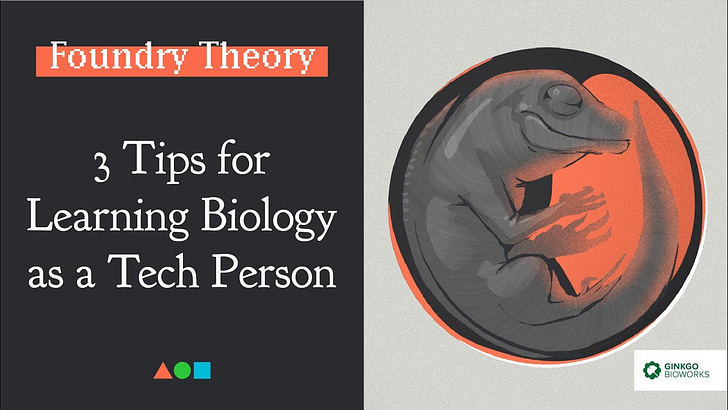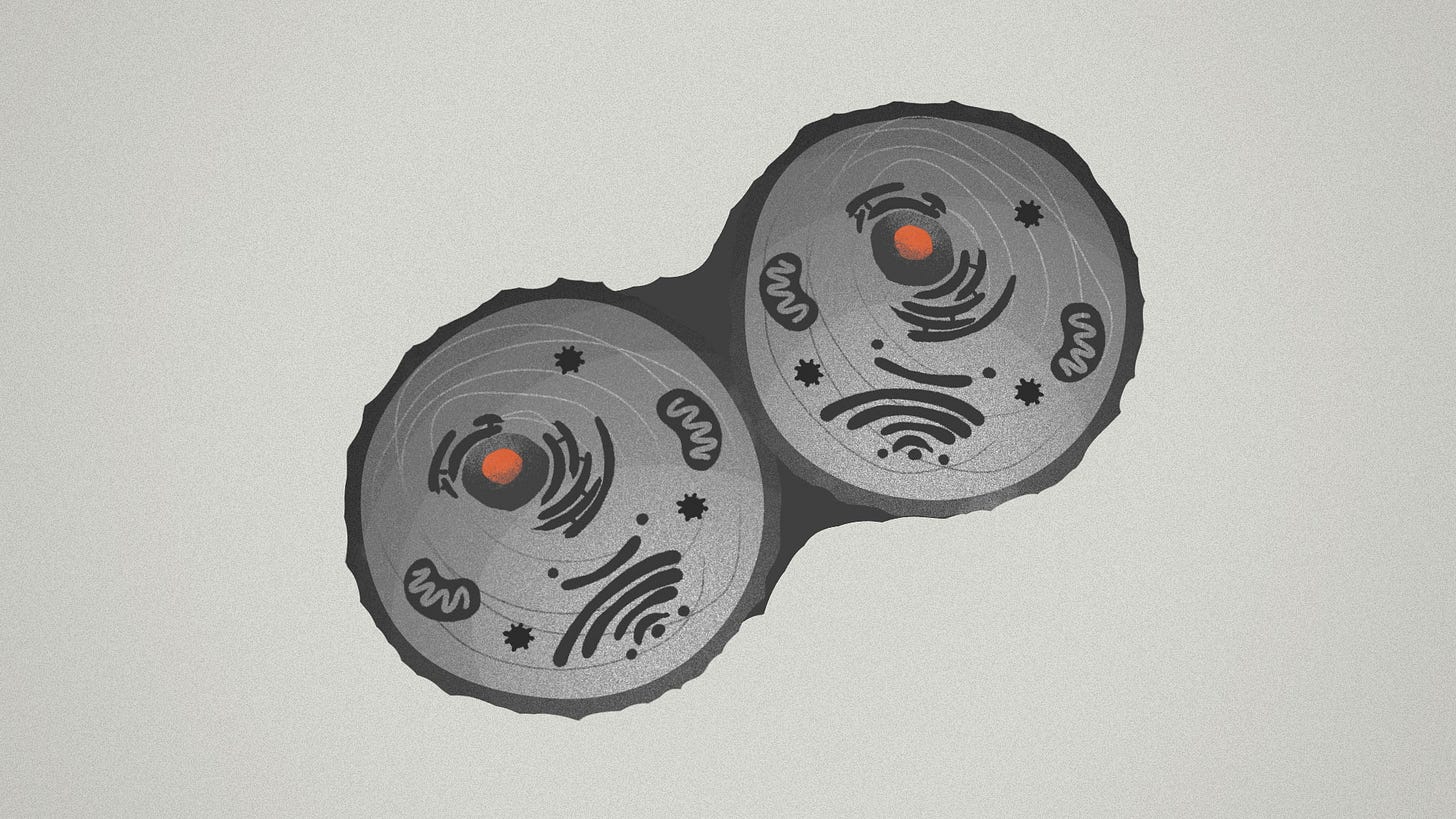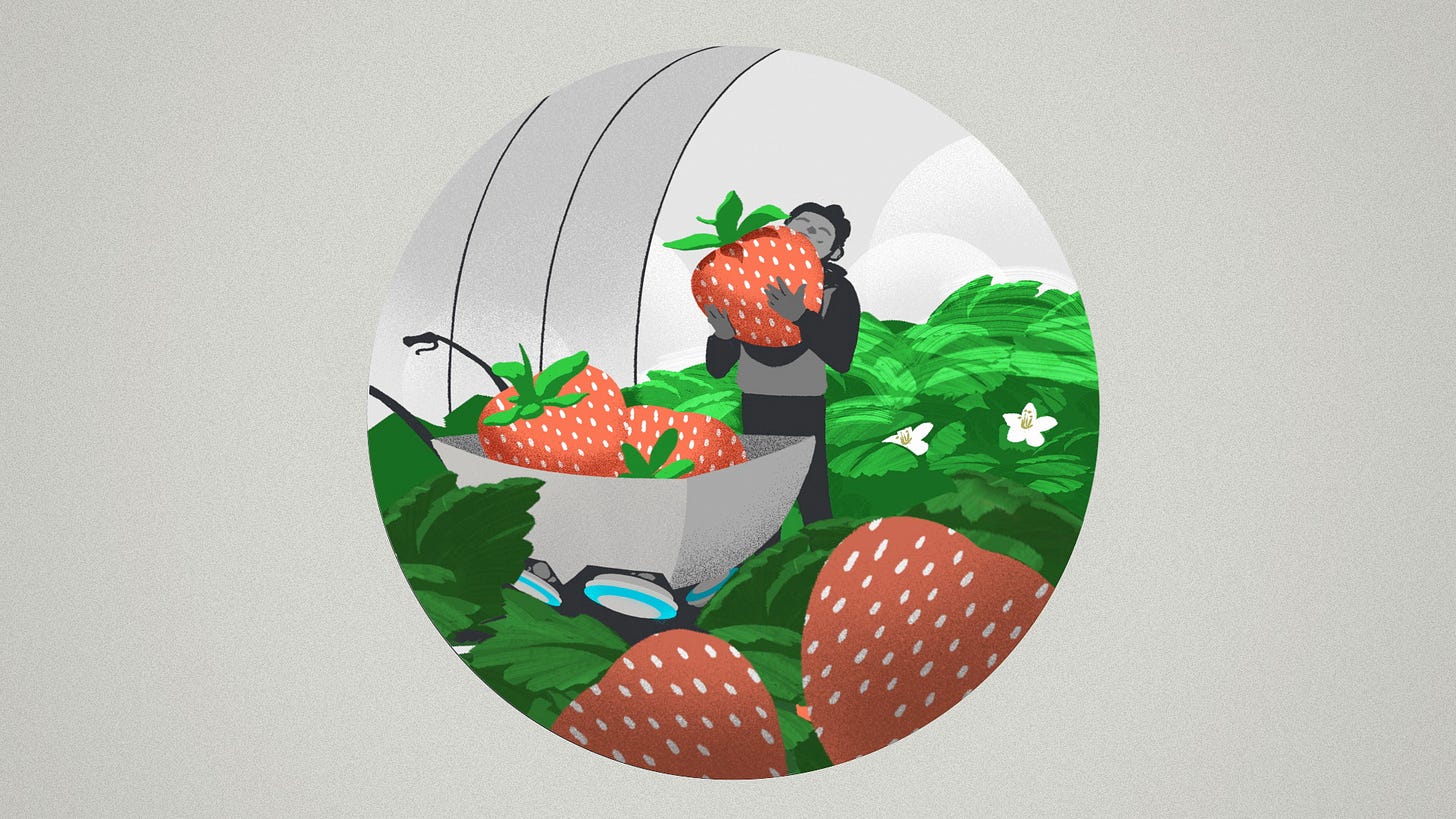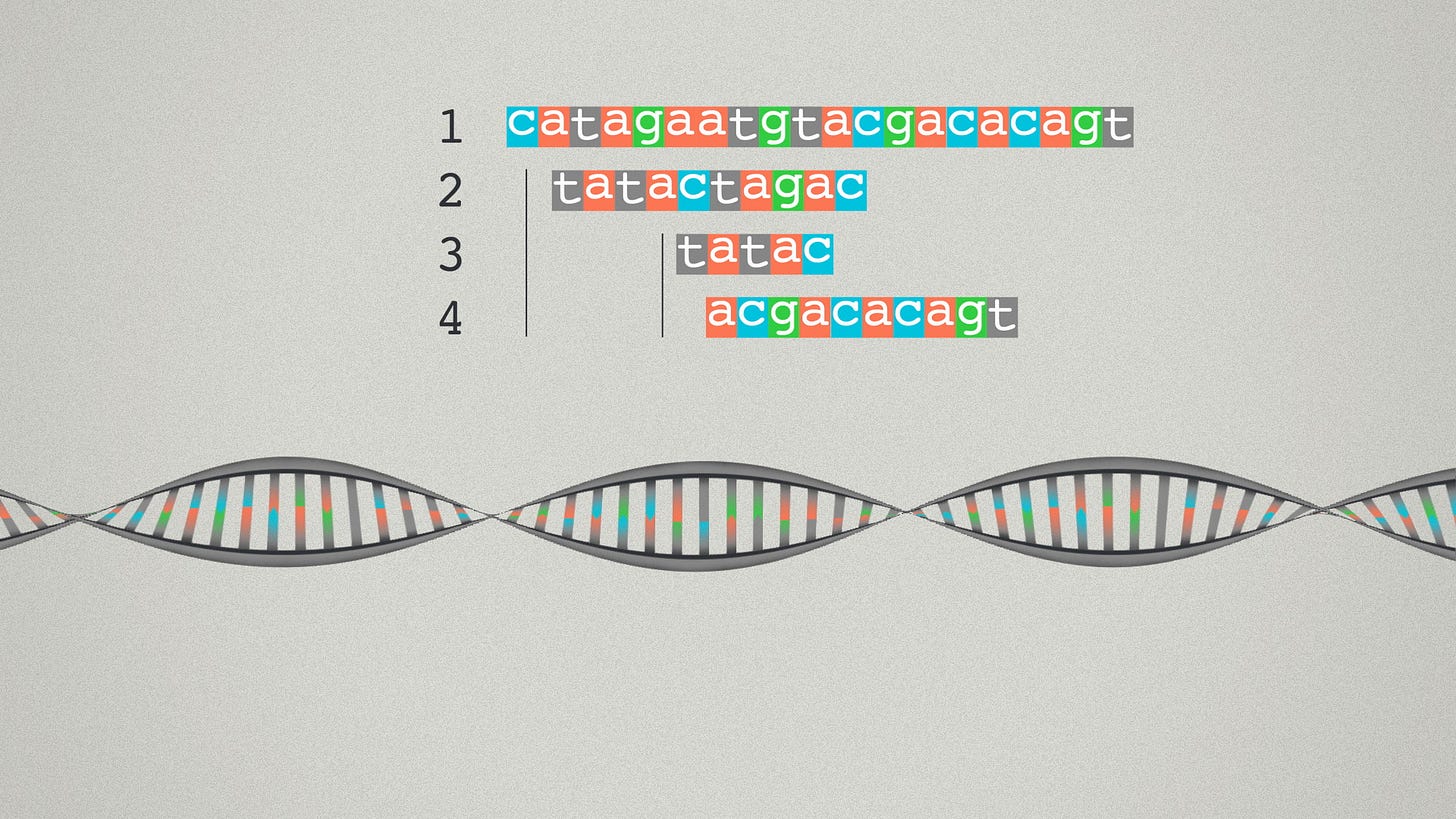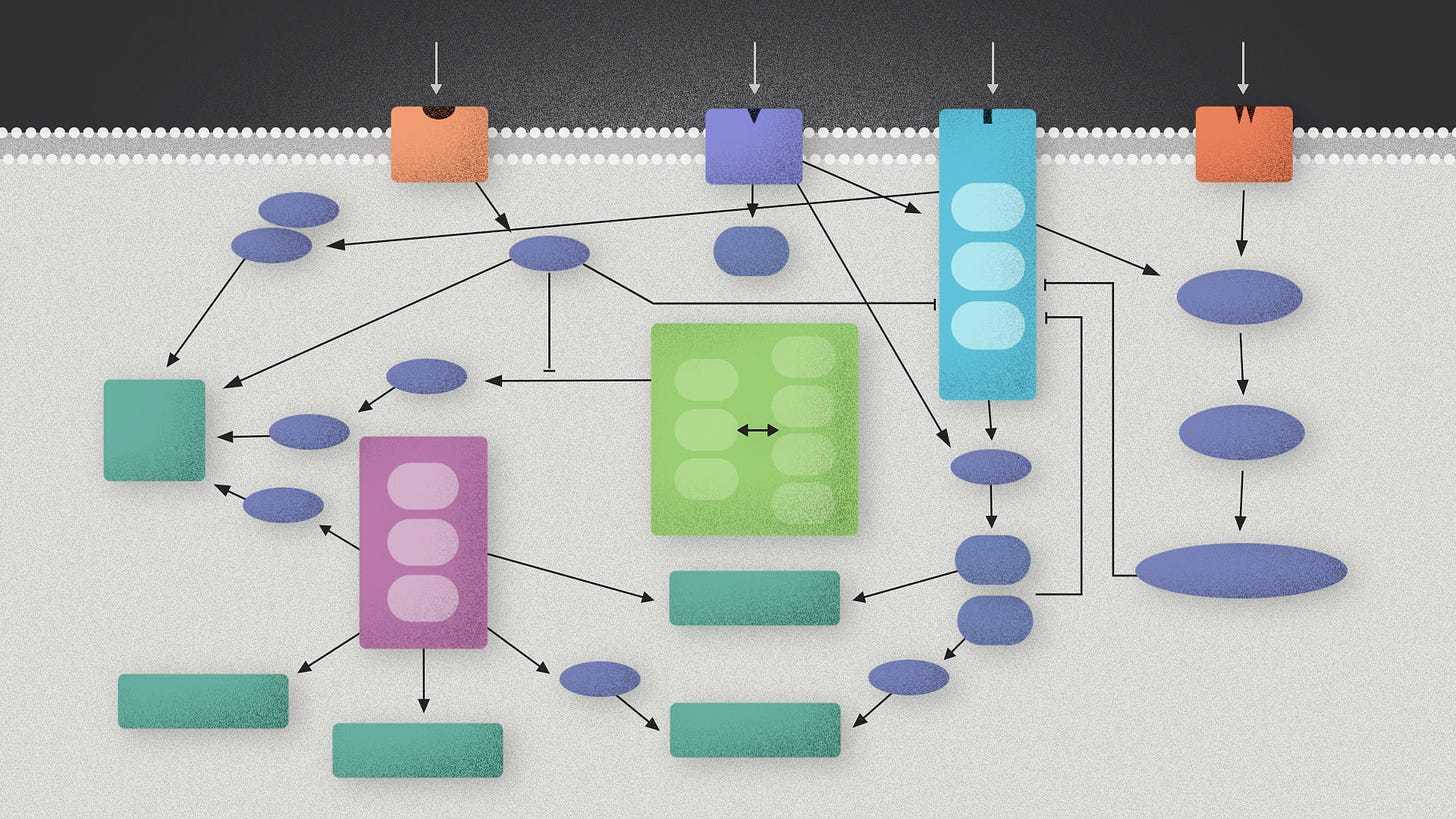You've got a background in tech and you want to get better at biology. You have made a great decision my friend! So buckle up and let's get started.
Transcript
Let me know if this sounds like you: you're a huge nerd. You love technology so much that you made it your career. You studied engineering, or computer science. Or maybe you didn't study, you just started coding one day and you got good at it.
But somewhere along the way, you noticed that today's tech ecosystem wasn't serving up problems worthy of your hard work. How many AI copilots does my grocery list need? How much more optimized can those social media ad servers get? Maybe B2B SaaS isn't your calling in life.
So you looked inside and you found biology. Bio has all the interesting problems. You want to cure diseases? Solve the climate crisis? Bring back dinosaurs? Engineer strawberries as big as your head? Of course you do.
And then you heard someone like me say that DNA is (kind of) like computer code. So your tech skills are not only needed - maybe they're translatable. Maybe you can learn biology like you'd pick up a new programming language. Maybe it's easier than it seems.
Well I love the way you think. And you're right about everything. Except the part where it might be easy. It's actually hard as hell. But it's worth it. And we need you. So I'm going to share some tips and tricks for tech people picking up bio.
Tip #1: Add +iGEM to your searches
Many people start their bio journey just by randomly searching topics they're curious about. Your biggest challenge at this stage is finding content written at your level that you find interesting.
You're going to find a lot of scientific journal articles. Those are great once you're already an expert, but they're not written to be accessible. You're going to find a lot of pop science stuff that's fun to read but doesn't get into the details.
iGEM lives right in between. Basically it's a synthetic biology competition for students. It's been going on for 20 years, so hundreds of teams have done projects on basically any topic you can imagine. As part of the competition, they have to document their work on a public wiki.
Some of the projects are crazy. Some of them are beautiful. But they're all written up by smart beginners who get into the details. So adding +iGEM is the synbio equivalent of adding +reddit. You get content from motivated semi-expert humans.
Tip #2: Get your hands dirty
Metaphorically I mean. Usually you'll be wearing gloves. But biology has some things you have to learn hands-on. It's one thing to design a plasmid with DNA sequence editor software. It's another thing to actually transform the physical DNA into a living microbe and see it do something. Just running through a few lab protocols yourself can wipe out any biology imposter syndrome and make you feel more at home.
So how do you do it? We'll if you're lucky enough to live near a DIY Bio space, you're set. I'll put some links below to help you find one.
These are like makerspaces or hackerspaces in tech. They have the basic gear and people who can show you how to use it. Some of them host events for beginners. Make a bacterium glow. Brew some beer. Stuff like that.
If you don't have a local biomaker space, you can find kits that let you run basic protocols at home. Search for DIY Bio kits, for example. There's less you can do at home, versus in a lab with more robust safety equipment, but you definitely can edit and transform DNA.
Tip #3: Let the complexity wash over you
Biology is less modular than tech. It's harder to divide into systems with clear boundaries. This can make biology frustrating to learn. You start researching how plants remove carbon from the atmosphere and you end up learning about chemical signals from microbes in the soil. You want to know the genes that influence human lifespan and you end up learning about how nematodes survive starvation.
In tech, most of what you need to know is collected in the documentation. Biological knowledge is more like an LLM - lots of data points with weak associations that depend on context. There is no single source of truth. Instead, you want to build up a personal store of random biology facts that can help you free associate.
How do you do it? Pop some caffeine pills and speed-read a textbook like Molecular Biology of the Cell. Get an AI to read you summaries of wikipedia articles while you're working out. Pop some popcorn and have a movie night where you watch Barbara Imperiali's Intro Biology lectures at MIT. That's a fun night.
You don't need to know everything. I know it's kind of cliché when you're encouraging someone to learn something new to say "even the experts don't know everything." But in biology that's true in a more fundamental way. Biological understanding isn't something you have, it's something you accumulate. We're always gaining new perspectives on a system where the complexity doesn't really end.
That's why we need your perspective as someone who comes to biology from tech. And it's why the best way to understand biology is to just dive in.


